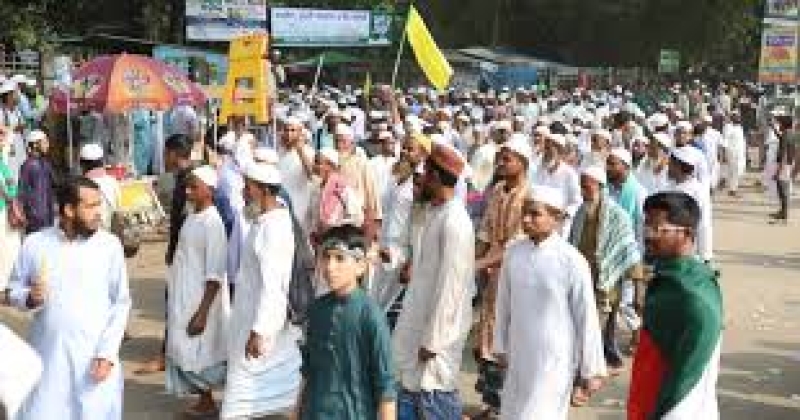- BNP to go door to door for hearts and votes |
- Chittagong port tariffs increased up to 50 per cent |
- Rising Heat Cost Bangladesh $1.8 Billion in 2024 |
- Stocks extend gains; turnover drops in Dhaka, rises in Ctg |
- IAEA Chief Calls for Renewed Commitment to Non-Proliferation |
Islamic Scholars Present 9-Point Demand in Dhaka

An Islamic conference organized by Ulema and Mashaikh at Suhrawardy Udyan in Dhaka concluded on Tuesday with the announcement of a nine-point demand directed at the government, which includes seeking justice for the 2013 Shapla Chattar killings and the withdrawal of all false cases filed against Islamic scholars.
The gathering, which attracted thousands of attendees from across Bangladesh, emphasized the protection of Qawmi Madrashas, Tabligh Jamaat, and the broader Islamic identity in the country. Prominent Islamic scholars and leaders underscored the need for greater safeguards for these institutions, calling on the government to take immediate action.
The nine-point demand, delivered via loudspeakers to a rapt crowd, also included a call for justice regarding the recent attack on students by supporters of Saad Kandhalvi at the Tongi Ijtema, and the prevention of Saad’s entry into Bangladesh. The scholars further demanded restrictions on the entry of Saad’s supporters at the Kakrail Mosque, as well as an official declaration that Qadianis be recognized as non-Muslims in Bangladesh.
Shah Mohammad Mohibullah Babunagari led the concluding prayers after the conference, which ran from 9:00 am to 1:17 pm.
The event, which saw a large congregation of scholars and followers, created significant traffic congestion in Dhaka throughout the morning. Among the prominent attendees were Khalil Ahmad Qasemi of Hathazari, Allama Abdul Hamid Pir Saheb of Madhupur, Allama Abdul Rahman Hafezzi, Allama Nurul Islam, Maulana Obaidullah Farooq, Maulana Rashidur Rahman, and many other notable figures from the Islamic scholarly community.
Hundreds of Qawmi Madrasha scholars from all corners of Bangladesh also participated, contributing to the heavy traffic disruptions that affected various parts of the city.
The conference marked a significant moment in the ongoing discourse on religious and educational issues facing Bangladesh’s Islamic community.

